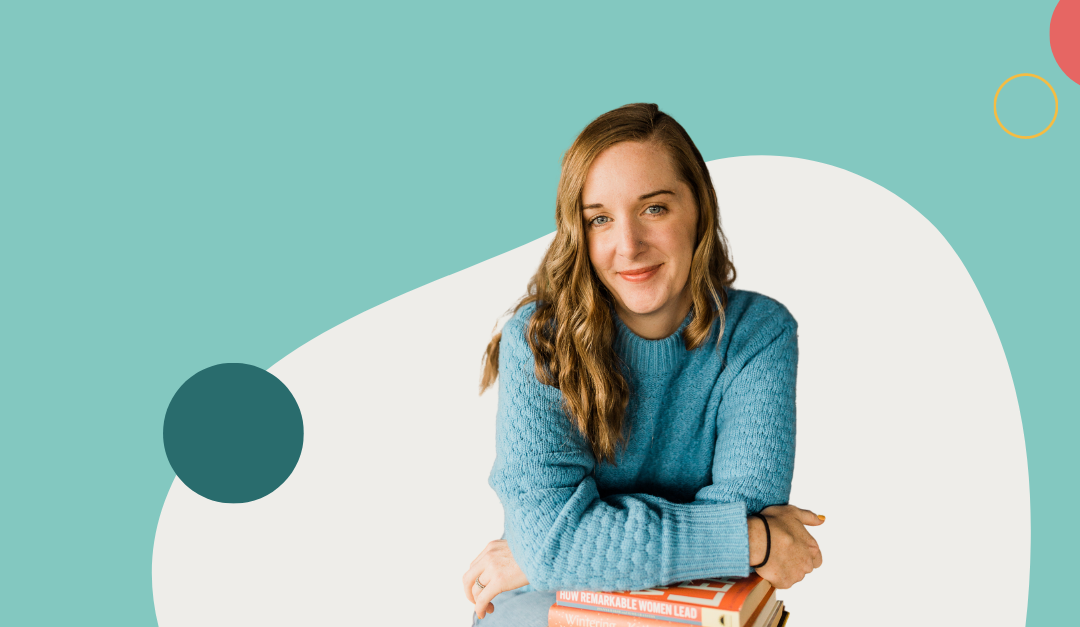
Freelance Interview Series – Mastering Mindfulness as a Solopreneur
Jenni Gritters is a freelance writer, editor, and business coach who works with fellow solopreneurs and small business owners on writing projects and strategic business planning. Jenni also has a monthly newsletter called Mindset Mastery chock full of helpful content for those who want to prioritize their well-being and incorporate mindfulness into their day-to-day.
Mastering Mindfulness as a Solopreneur
Talk to us about what mindfulness means to you. Why is it important?
Mindfulness is one of those buzzwords that everyone seems to use, and it can mean 1000 different things to 1000 different people. For me, mindfulness means paying attention. I’ve spent a lot of my life working reactively – meaning, working on things as they land in my inbox, and responding to other people’s needs before my own. In the past 3 years, I’ve been forced (by illness and caretaking) to be much more intentional about the way I work. In this context, mindfulness means paying attention to what I need and how I feel in any given moment. It means listening to my brain, my body, and my intuition when I’m choosing my clients or planning my day.
In what ways do you incorporate mindfulness into your daily routine?
It’s going to sound cliche, but being mindful of my surroundings and my internal experiences has really changed my life. I spent so many years expecting that “success” (ie. money and recognition) would make me satisfied. It turns out, those things are hungry ghosts. What’s really made me happy is paying attention to the little things, and paying attention to myself.
I have a really chaotic life because of my two small children (who are 9 months and 3 years old). I’m not able to have a set routine, but I do have mindful patterns: I spend at least 30 minutes each day meditating and reflecting on what’s going on, what I need, and how I feel. I make it a priority to get outside every day, even if it’s just for a 15-minute walk; I try to notice the birds, the trees, and the people who walk by. I also try to take 5 minutes each morning to figure out how I’m feeling, so I can plan my day accordingly. (I recently wrote about this in my free newsletter.) And I wait 24 hours before responding to any client offer, so I can make sure the project is aligned with what I need during this season. It’s all very intentional, which is simple but not easy.
How has practicing mindfulness positively impacted the success of your freelance business?
I have a lot more control, and I’m able to take care of myself better. I’ve moved from being reactive – which means other people control my inbox and schedule – to being proactive. I’m making the choices. I do have times when I slip back into that reactive mode, and my workload suddenly starts to look like a chaotic mess. But this has happened enough times that I know how to pull myself out of the muck so I can realign. The reset is not pretty but it’s usually worth it. So much of my stress comes from working on projects or with people who don’t share my same priorities!
I also attribute a lot of my financial “success” (for years I’ve made six figures working 15-20 hours/ week) to being more intentional. I can’t work with clients who don’t pay the rates I need. Sometimes I wish I could! But when I take a moment to revisit my priorities, I can see clearly that the relationship isn’t going to be right for me. Being intentional means I stand my ground.
Taking a stand on intentionality is also why I have a coaching practice! I really do believe that becoming more proactive is a route to happiness and freedom in business ownership, which is such a tricky career path. I’ve had to do a lot of mindset work to give myself permission to step back from journalism – which was my original career path – and into coaching. I still do some of both but I would not have been able to grow both service lines without continual self-interrogation.
What are some of your favorite resources that have helped you along your mindfulness journey?
I love this question! Some of my favorites:
- Insight Timer is a free app; you can search for short meditations + breathwork practices that slow your brain down enough to check in. Try the yoga nidra meditations before bed!
- Stolen Focus is a great book that considers distraction and how to find moments of pause and/ or flow
- Time Management for Mortals is a time management book that’s not a time management book! It’s actually more about what I’m talking about here – intentionality amidst the chaos that is work life
- I love Damon Brown & Nisha Moodley’s work
- The podcast On Being usually gives me interesting things to consider regarding the ways we work and live, and how we can integrate growth into our daily lives
- Brad Stulberg is a cool Instagram follow; he talks about mindfulness & sustainable biz building
What advice do you have for small business owners who want to incorporate mindfulness practices into their daily routines but have limited time?
I, too, have extremely limited time! My advice is this: mindfulness can look like so many things. Essentially, it’s just about checking in with yourself as a daily ritual. You’ll need to find the best way to do that in your life; it should not feel like a frustrating effort! I have clients who reflect best on walks or while exercising. Some people need a piece of blank paper and a set of colored pencils. Some of us just need 3 minutes to take some deep breaths and close our eyes. Some of us will find it useful to talk to someone (a partner, a therapist, a coach).
Find the thing that works for you – which will take some experimentation – and then implement it in a tiny way. Start with 2 minutes before you open your inbox. It doesn’t have to be big in order to change the way you work. (This framework can be a really helpful way to check in with yourself!)





Recent Comments